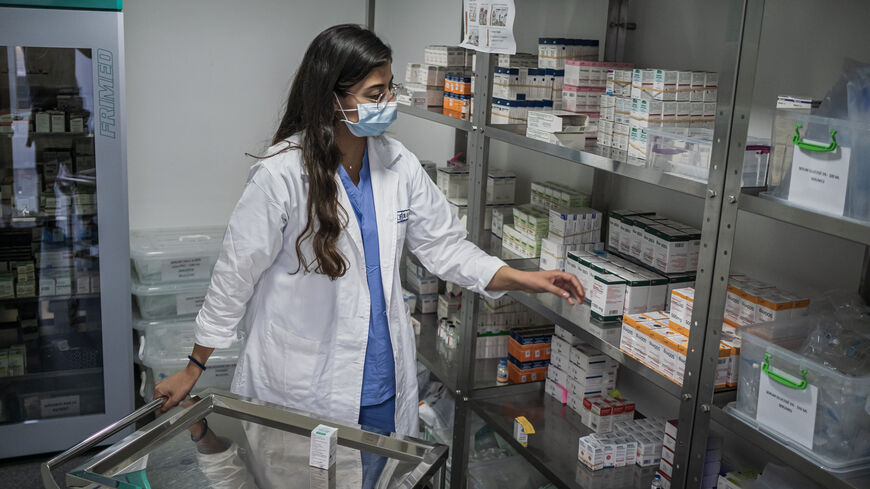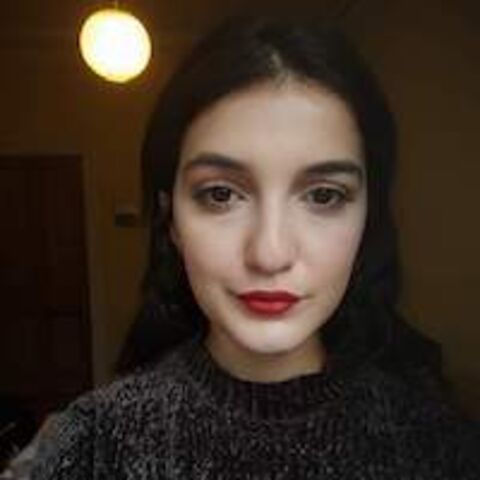BEIRUT, Lebanon — Due to Lebanon's continuous economic collapse and exorbitant inflation rates, most of the country's population is unable to access the health care system. Medical shortages and high hospital costs have rekindled interest in ancient medical practices, which differ in type and price. Whether it is traditional Islamic medicine in apothecaries or modern healing centers that combine eastern traditions with Arabic teachings, experts told Al-Monitor that the coronavirus pandemic — mixed with the economic crisis — has caused demand to increase.
The Middle East has always been a major center for alternative medicine, which is a concoction of Islamic, Chinese and Ayurvedic therapies. In Lebanon, these practices manifest as herbalism or the combining of herbs, spices and natural oils, as well as physical healings such as cupping, energy healing and acupuncture to treat illnesses. Medications range in price from less than $4 to more than $100.
Hajj Khalil Darwish has been in the business of herbalism for over two decades. His apothecaries are located in Aytit, a village in southern Lebanon, and Burj el-Barajneh, a neighborhood in the southern suburbs of Beirut.
As people panicked and feared for their lives during the coronavirus pandemic, demand picked up, he told Al-Monitor. "Two years since the pandemic started and I'm starting to run out of stock. The demand sometimes exceeds the supply as people are frustrated with the increasing prices of regular medicine and doctor visits."
Amid the economic collapse that devalued the Lebanese lira with more than 95% of its value and locked people out of their dollar deposits in banks, vaccinations, prescriptions and doctor visits ceased to be affordable as insurance policies became costly and hospitals started charging dollar amounts.
Among the most alarming conditions, people face nowadays are skin issues like eczema, infections, rashes, along with male infertility and irregular menstrual cycles for women, Darwish said.
"Due to poor hygiene and poor living conditions, Syrian refugee children are most vulnerable to skin diseases," he noted. "As for women, I'm shocked to see women as young as 16 struggling with menstrual problems that weren't prevalent six years ago."
He added that gut-related illnesses are on the rise, too.
A small container for treating acne can cost as little as $2, while a full treatment for a diabetic patient can cost as much as $120.
As for mental distresses, Darwish said each condition has its own herbal remedy.
"A person with anger issues, for example, should avoid 'fiery' mixtures that contain ginger and pepper that we use to treat depression," he noted.
As therapy costs are rising, Lebanon is experiencing a mental health crisis with free psychological services in high demand. Suicide rates have increased as a result.
According to Liliane Eftekharzadeh, healing practitioner and owner of Angel Healing clinic in Hazmieh, a suburb of Beirut, 80% of clients complain about mental distress.
She treats these with a combination of acupuncture, cupping and dietary plans, among other personalized treatments.
Eftekharzadeh offers treatments ranging from beautifying therapies like detox sessions and facial massages to healing practices like reiki and hijama that are influenced by Chinese, Arabic and Ayurvedic principles.
One of her most popular and recommended services is hijama, or wet cupping. Hijama is an Arabic word for "suction" and is a nonoperative, noninvasive method of drawing blood, lymph and other fluids from the shallow skin layer through the use of wet cups.
Pressure from the cups helps eliminate unhealthy toxins and replenish healthy, cleaner blood circulation in the body. As per Islamic tradition, the Prophet Muhammad advised his followers to seek out hijama, calling it "the best of therapies."
Eftekharzadeh's fees range from $50 per skincare session to $100 for the combination of hijama, hot stone and hot towel, which she labels as a "detox."
According to Eftekharzadeh, beauty treatments such as collagen therapy, oil therapy for hair and skin enhancement facials are also in demand, despite the financial crisis.
"When it comes to health, I do not consider these [beauty treatments] luxuries as they are a vital part of the body that is in need of attention and care," she said.
This year, Eftekharzadeh has seen the most clients since she opened her clinic three years ago. Many clients seek weight loss treatments, and she advises a special dietary plan tailored to their temperament, physiology and even geographical location.
A man suffering from high blood pressure told Al-Monitor on condition of anonymity that he plans to stop taking his blood pressure medicine and replace it with a natural mixture of honey, garlic and lemon juice, prescribed to him by a healing practitioner abroad.
"My budget can't support $50 for medicine every month, and I'm simply losing hope of getting better, so I have nothing to lose either way," he told Al-Monitor.
He was encouraged to try alternative medicine after his friend did the same and claimed to have improved. In light of the current health care crisis, where the Lebanese government offers no cheap alternatives for the cash-strapped Lebanese society, alternative medicine is gaining popularity, despite being unregulated by the government, leaving people vulnerable to fraud and dangerous dosages.








